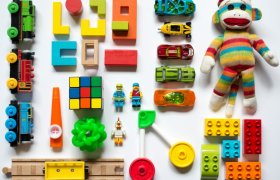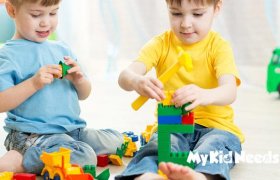15 Of The Best Parenting Techniques You Will Ever Read
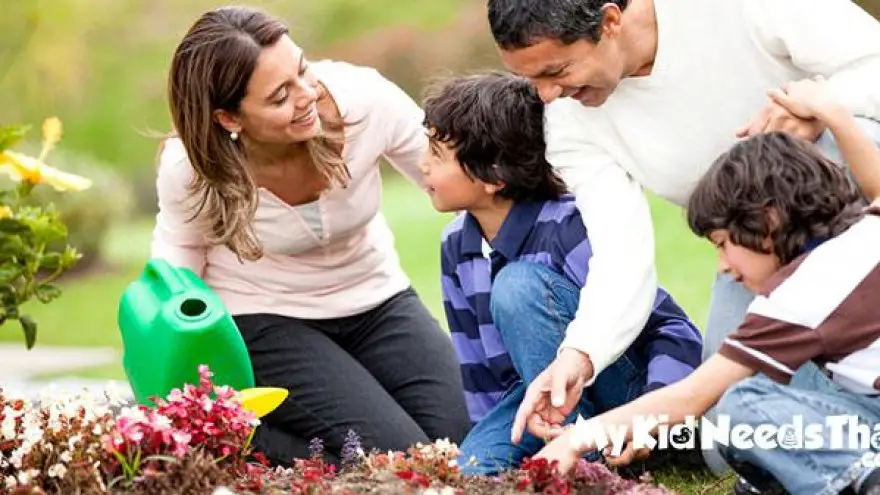
Parenting: The Right Way
Parents are children’s first teachers. Long before kids enter the premises of an educational institution, they would already have gained a lot of information, developed their motor and coordination skills, and exhibit a healthy emotional and social outlook. This is how critical parents’ role is in child development.
Unfortunately, some parents rely on their own experiences as children to direct their pattern or style of parenting. Some mimic exactly the same kind of parenting style their parents once used on them while others modify these techniques a little bit. Some parents, whose childhood may not be as positive as others, may feel compelled to do exactly the opposite of what they have experienced as children. This is especially true if they have already learned that their past experiences are not necessarily formative.
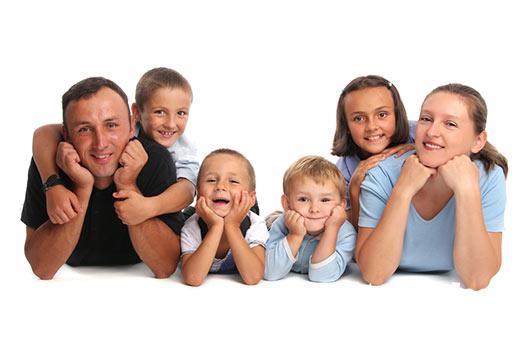 A Look at the Theories and Different Styles of Parenting
A Look at the Theories and Different Styles of Parenting
Before we can progress to the different techniques of parenting, it is often important to understand some of the more common parenting styles as well as the theories that provide the framework for such styles.
While John Locke advocated for concerted cultivation, it was Jean-Jacques Rousseau who really encouraged slow parenting, that kind of parenting that slowly teaches kids as they move in their interactions with the world. It was Jean Piaget who provided the understanding of how children at different stages in their lives process information as part of their cognitive development. Erik Erikson provided the framework for explaining human psychosocial development which also help modern parents understand what social and emotional skills they need their children to develop. Rudolf Dreikurs provided the explanation for children’s misbehaviors while Frank Furedi established the notion of infant determinism. Tim Gill cautioned about excessive risk aversion while Judith Rich Harris identified peer influence and genetics as having the most effect on child development.
It was Diana Baumrind who formulated the 4 styles of parenting used today by many child development psychologists, social work specialists, and family therapy experts. These include the following.
- Authoritative parenting – In this parenting style, parents have very high expectations from their children yet they are equally supportive and responsive of their needs.
- Authoritarian parenting – Parents with this style have very high expectations from their children but they don’t temper it with love, affection, support and responsiveness.
- Indulgent parenting – Parents do not demand so much from their children. However, they do shower them lavishly with love, affection, and caring. Some experts call this permissive, libertarian, non-directive, or lenient parenting.
- Neglectful parenting – From the term itself, this parenting style is a laissez-faire kind of parenting where children are given neither direction nor attention or response.

The Best Parenting Techniques
Strive to become an Authoritative Parent, Not an Authoritarian One
Many parents fail to distinguish the difference between being authoritative and authoritarian. The former entails having very high expectations from children. These expectations are intended to bring out the best in kids so they will become successful individuals someday.
This should be tempered with love, affection, and caring as well as the giving of the proper guidance and direction on how children can excel. This means that it is okay for children to make little mistakes as long as they will learn from it and strive to become better. It’s definitely a lot easier said than done, though because parents can get frustrated as well.
Shower Your Kids with Love Early in their Lives
While one cannot teach newborns yet about the alphabet, you can nevertheless teach them about trust. When you shower them with your love and attention early in their lives, they begin to start trusting in you. This trust transcends all things later in life. According to Erikson, it is the foundation of all psychosocial development. When babies don’t learn to trust in their parents, they also begin to have doubts in themselves and their abilities. This makes learning and establishing meaningful relationships later on in life a bit more challenging.
FEATURED TOY
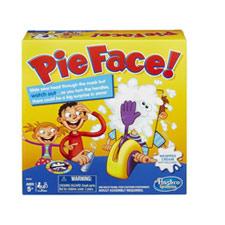
- Great Family Fun
- Help Build Sibling Relationships
- Best Seller In Kids Games
Let Your Kids Explore their World in a Safe Way
It is perfectly all right to be protective of one’s kids. However, if they are not allowed to explore their surroundings and experiment with the things that they see, touch, taste, hear, and smell, their creativity and imagination is effectively dampened.
This is where childproofing the home can have its many benefits as well as in the selection of age and developmentally appropriate toys that are also safe. Let them explore their world but always make sure to be there when they need you. They will learn that they are free to determine their own fate but they can always come back to you for comfort and safety anytime.
Help Your Kids Develop and Enhance their Emotional Intelligence
Young children don’t know yet what they are feeling. They know that the feeling is not good when they see their favorite toy is broken. They also know that whenever they are able to play with others, they feel good about themselves. It is your task to label or name these emotions so your child will know them as either sad or happy. If your child is sad, don’t console him or her immediately. Just let your child express his or her emotions but be there to support your child. This helps kids to understand that expressing one’s emotion is perfectly alright. Share your emotions and feelings as well. Communication is key.
Find More Optimistic or Positive Ways of Explaining Things
It is inadvertent that you may see some negative things or even behavior from your kids. Whatever you do, resist the temptation to either generalize these negative events across space and time or to see them as permanently negative things. Children’s negative behavior is only temporary.
Try looking more at the root of this negative event rather than correcting or punishing your child immediately. If good things happen, make sure to enjoy and share this feeling with your child.
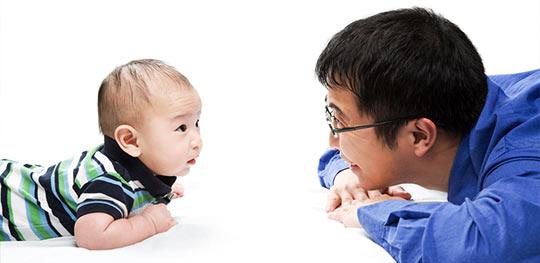 Don’t be Pessimistic or Negativistic Yourself
Don’t be Pessimistic or Negativistic Yourself
If you want your kids to grow up with a positive mental attitude, it is important to be optimistic and positive yourself. You may not believe in the concept of a psychic aura but it does exist in ways that is quite difficult to explain.
For many individuals, they call this vibe. Your children also senses this “vibe” as either positive or negative. The more negative “vibes” you project, the greater the negative things your child will pick-up. Conversely, staying positive “infects” your child with optimism and positivity as well.
Maintain a Healthy, Positive, and Warm Bond with Your Partner
Parenting is a challenging responsibility. Unless you are a single parent, it is a lot better to make sure your relationship with your partner is also a positive one. Some young children blame themselves for any quarrels or fights their parents go through.
This is why in a divorce, it is not so much as the parents who suffer immensely but rather the children who have to bear the brunt of the divorce. Creating a warm, healthy, and positive home environment is one critical aspect of effective parenting.
Provide Labeled Praise
Child psychologists always advise on the use of positive reinforcement especially in giving praises and rewards. Conversely, punishments are not encouraged especially when applied in response to an undesired attention because studies show it only reinforces the performance of the undesired behaviour.
If you are to give your children praise make sure to label it by associating the praise or reward with the desired behaviour. This reinforces repetition of the desired behaviour.
Learn More about Child Development
Take time to really understand the different developmental milestones of your children. This can help you modify your own style of parenting. Each developmental age has a specific set of characteristics that define their development as children.
For example, teens will be typically concerned about body image and as such it would be well to help them with their clothes and appearances. A preschooler would want to please his or her friends so giving praise in the presence of friends will be good for him or her.
Ignore Your Kid’s Minor Misbehavior; Respond to Positive Ones
The more you pay attention to your kid’s misbehaviour, the more it gets inculcated into his or her young mind because it is often interpreted as a means of getting your attention. This is especially true for young kids. Now, if your kids will do it the desired way, then you respond.
For example, if your toddler throws his or her food on the floor, you can just ignore it. If he or she asks nicely for something, then you respond. This teaches kids that there are right ways of doing things. If you give attention even to the negative things, this also gets imprinted in the child’s young brain.
Know When to Use Time-Outs and Quality Time-In
Provide immediate and brief time-outs to allow your child’s emotions to simmer down a bit. This helps them learn control of situations and when to back down and recuperate. In order for this to be effective, you need to be a good role model for your kids to follow.
Additionally, you will need to be instantaneous in offering positive reinforcement and refraining giving attention to negative behaviour. Be ready to praise your child for complying with the time-outs.
FEATURED TOY
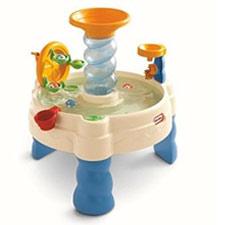
- Outdoor Fun For Toddlers
- Helps Develop Fine Motor Skills
- Best Seller In Kids Play Tables
Strive to Prevent Misbehaviour
If your child has been exhibiting undesired behaviour for quite some time, try to understand the root cause of the problem and seek to address it without affecting the child. It is always a lot better to promote and prevent rather than to resist reacting to your child’s continued misbehaviour.
First, Take Care of Yourself
It is often difficult to fulfill your parenting chores if you yourself have difficulty caring for yourself. Make sure that you have plenty of fresh air, adequate exercise, good nutrition, and a healthy social life so you will be able to manage your stresses a bit more effectively, this translates to better parenting as you have all the positivity of doing what you consider is right for your child.
Devote Undivided Time and Attention to Your Child
When you say you are going to spend quality time with your child, make sure that you mean every word of it. This means that you have to put away your mobile devices, your laptops, and other possible distractions. If you are with your kids, make sure the office won’t be able to call you.
If you are with your kids, other people except your partner and other primary caregivers are off-limits. This is your quality time and this can only be achieved if you are not only physically present with them but are also connected mentally, socially, and emotionally.
Don’t Transfer Your Power to Your Partner
Some parents can get easily frustrated. Unfortunately, when they do reach their boiling point, they tend to employ a scare tactic such as telling their children to wait until their father or mother hears about what they have done. It is like telling children that severe punishment will surely befall the child for his or her misbehavior. Not only are you giving attention to the misbehavior, you are also transferring your power over your children to your partner.
For your kid, this means that your partner is effectively the one who controls everything in the house. This creates a message for your child not to believe in you because someone else is in charge. Why would he or she listen to you if he or she knows your partner will be the one to eventually decide? You are sending the message that both you and your child are under the control of your partner.
Becoming an effective parent is tough. And while we have listed here about 15 techniques you can use to become a better parent, there are still hundreds more out there that can also work for you. Just remember that effective parenting is all about reinforcing the positive and ignoring the negative while at the same time fostering healthy family relationships.

